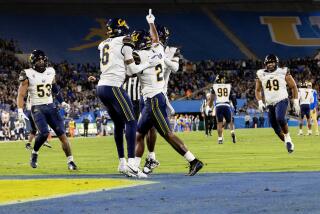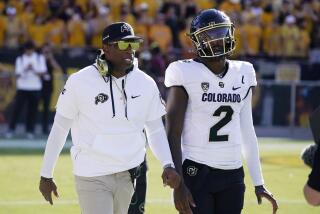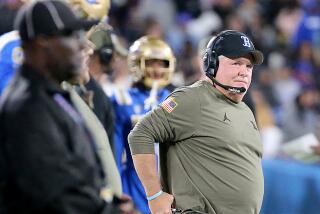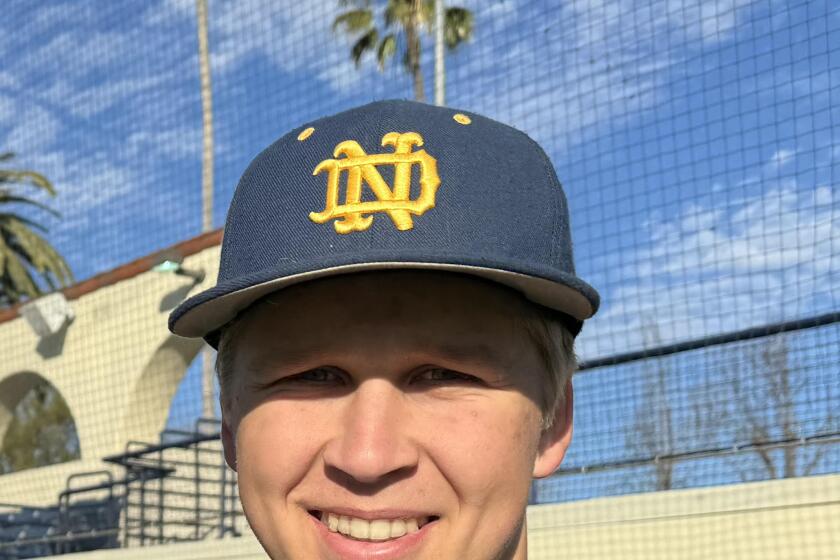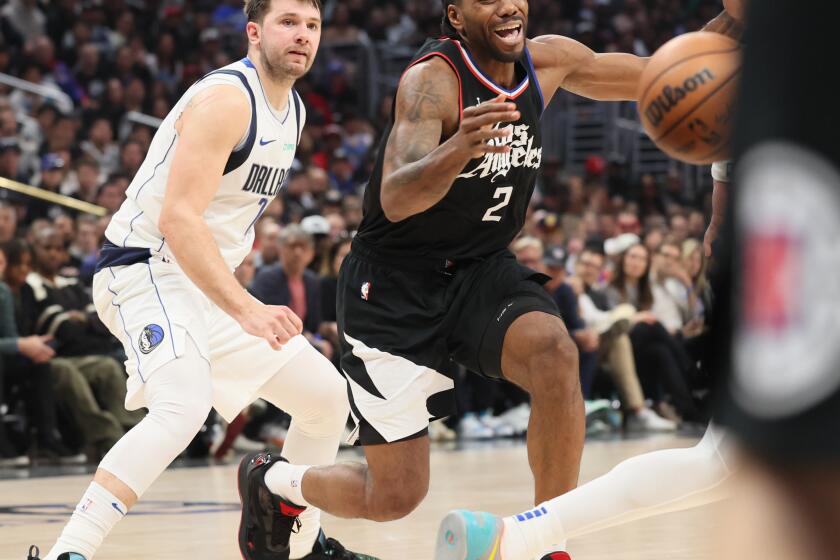NCAA sees bumps in the road, but schools pay for the damage
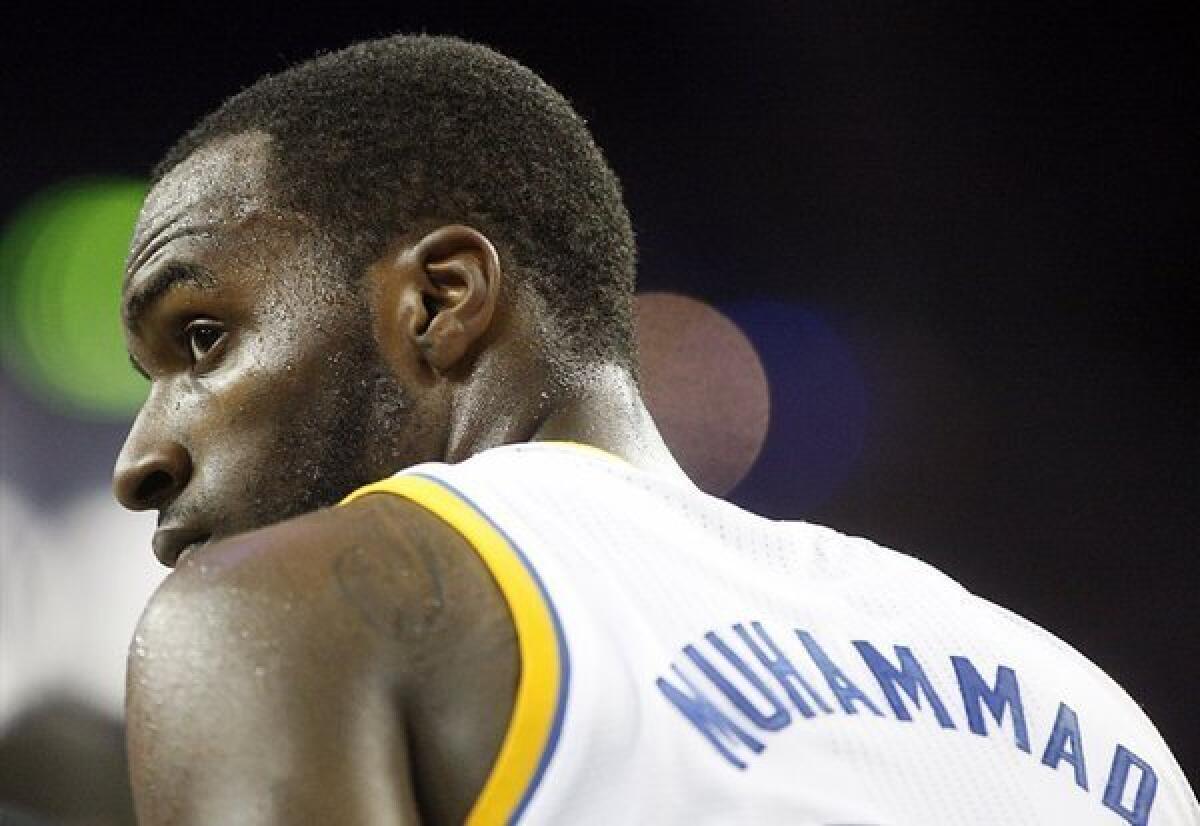
Come to find out, the creators of the dreaded “lack of institutional control” have been throwing stones from inside their own glass house.
The NCAA, short for the National Collegiate Athletic Assn., is now in the kind of damage-control mode that it so often, and so smugly, puts its member institutions. Recent revelations about the NCAA’s enforcement procedures have been so damning that its executive committee took the unusual step Saturday of publicly announcing its president would continue to be its president.
His name is Mark Emmert and his executive committee said it was “unanimously confirming its confidence in Mark’s leadership.”
If Emmert were a baseball manager, such a vote of confidence would mean he’d be fired by the end of the week. But the NCAA is its own world, an impenetrable planet in an unreachable orbit. Had the Soviet Union been as powerful, and as well-financed, it never would have come apart.
Longtime NCAA watchers, especially cynical ones, will view this announcement as business as usual. The translation would read: OK, we got caught screwing up, but we are still too big to really care and we will form a new committee and seven subcommittees while we wait for this to go away.
The executive committee rationalized adeptly in its statement: “The road to transformational change is often bumpy and occasionally controversial.”
The bumps and controversy have been well-documented.
Among them is the possibility the NCAA went beyond its jurisdiction in penalizing Penn State; it had malice aforethought in the case of UCLA basketball player Shabazz Muhammad; and it paid the attorney of the booster being investigated in the University of Miami case to leak information to the NCAA.
Donna Shalala, Miami’s president, is doing a gutsy and dangerous thing by taking on the NCAA before judgment and penalties have been handed down. She has already self-imposed penalties.
“We have suffered enough,” Shalala says.
The only other gauntlet-throwing of recent memory was USC’s Mike Garrett, who sniffed at the NCAA’s investigation of Reggie Bush by telling a group of boosters the NCAA was “just jealous because they aren’t Trojans.”
That was similarly gutsy, but also more arrogant than sensible. The NCAA plowed under USC football. The Trojans, after losing ranking and bowl privileges, are still facing two more football seasons of competing under scholarship shortfalls.
UCLA took a smaller hit when the NCAA dawdled away three games of Muhammad’s basketball eligibility.
Bruins Athletic Director Dan Guerrero, who walked the painstaking investigation path step by step with NCAA officials over many months, says now, “You started to wonder how many stones you need to turn over.”
Muhammad was suddenly OK after The Times ran a story about the boyfriend of the lead investigator in the case, who was overheard on an airplane saying there was no question Muhammad was guilty and would be declared ineligible.
At USC, it is fair to assume degrees of anger toward the NCAA. The best guess is that President Max Nikias and Athletic Director Pat Haden aren’t having cocktail parties for NCAA enforcement staffers.
Haden says he was “surprised” by the recent revelations about the NCAA’s handling of the Miami case but adds, carefully, “All we ask of our governing body is to be treated with fairness and integrity.”
Guerrero and Haden probably have little choice but to continue to snap to attention and salute for the NCAA. Same as their peers. It’s the system, like it or not.
Guerrero says the public outcry over what has happened on Emmert’s watch has left a tone of “Rome is burning.” But he is also part of a task force of Division I athletic directors, looking for fixes. He says, right now, the NCAA is listening.
Shalala is taking the stance that, because the investigation of Miami wrongdoing was done by investigators who were engaged in wrongdoing of their own, the case should be over. Our legal system probably would conclude the same.
In that vein, if it were a less-than-ethical NCAA enforcement staff ruling on USC’s ethics, should there not be some thought to restoring football scholarships?
Even though UCLA’s basketball record might be a few games better had Muhammad played earlier, and even though that might enhance a better NCAA tournament seeding, Guerrero realistically sees no potential for payback.
“What’s done is done,” he says, apparently not wanting to cast a stone.
More to Read
Get our high school sports newsletter
Prep Rally is devoted to the SoCal high school sports experience, bringing you scores, stories and a behind-the-scenes look at what makes prep sports so popular.
You may occasionally receive promotional content from the Los Angeles Times.
